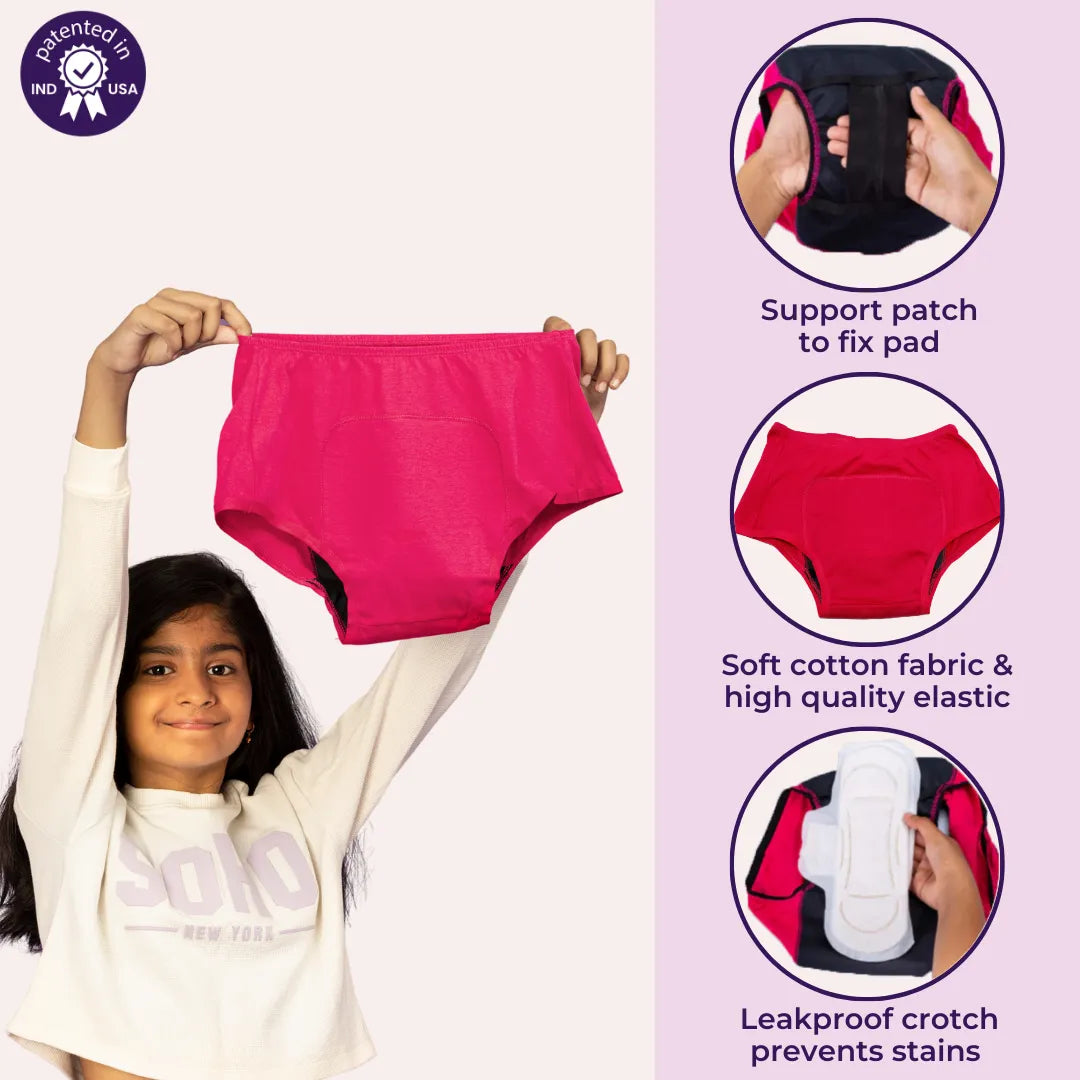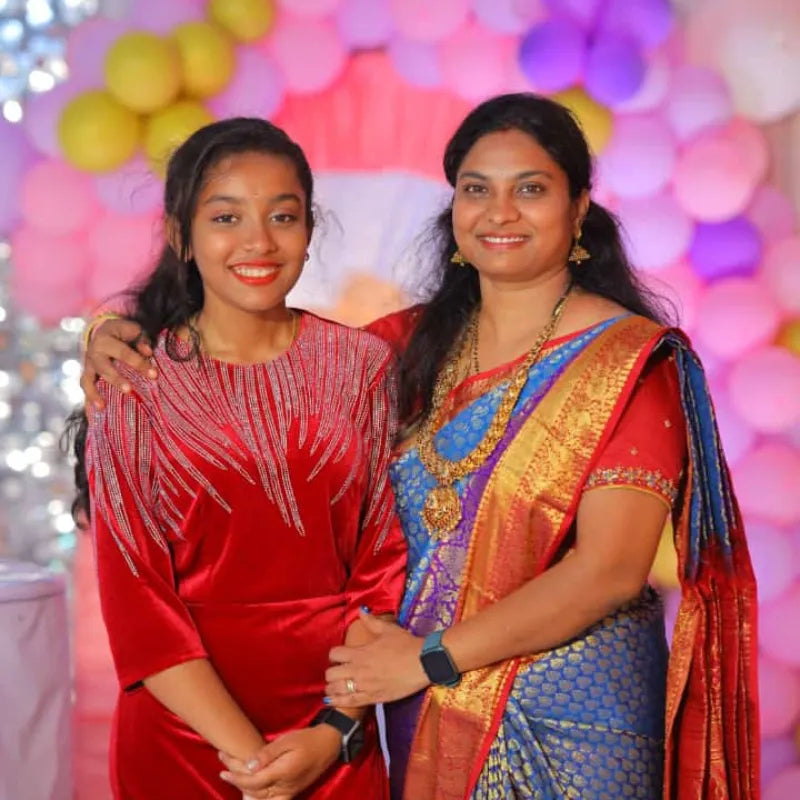Menstruation is often under-discussed among boys and men due to cultural silence. The culture of secrecy about periods not only results in a lack of information but also increases the gender gap. Period education for boys is key to fostering gender inclusivity. It helps them grow into empathetic individuals who understand and respect diverse experiences.
In empowering boys with knowledge of the menstrual cycle and menstrual health, we reduce taboos and myths, while promoting healthier, more informed attitudes.
Also Read: A Parental Guide: How to Talk to Your Daughter About Periods?
The Importance Of Period Education For Boys

Education ensures that boys are well-informed, enabling them to have a better understanding of what women and girls experience, hence creating respect and understanding between the two genders. Communication about periods and menstruation may encourage them to handle it as a natural occurrence in the biological processes and not a mystery or taboo. Normalising menstruation in this way reduces shame and stigma, contributing to healthier and more supportive relationships later in life.
Moreover, menstrual awareness introduces reproductive health concepts—such as fertility and pregnancy—to boys. Such information can be basic, but it can educate young people to engage in safe practices regarding sex and reproduction.
Also Read: What Are The 4 Stages Of The Menstrual Cycle?
Reducing Period Stigma Through Inclusive Education
Reducing period stigma plays a crucial role in comprehensive sex education. By explaining menstrual periods to boys, we can challenge the misconceptions that are one of the root causes of embarrassment or ridicule, discrimination and exclusion.
For boys who understand the concept of menstruation, there are lower chances that they will engage in negative actions like teasing female classmates or excluding them, and they are more likely to advocate for inclusivity.
Aside from that, with profound awareness about period products such as sanitary pads, tampons, or menstrual cups, they will be able to understand the sanitary needs that girls have.
Gender Equality And Communication Around Menstruation
Did you know that one in three males believes menstruation should be hidden from everyone? Therefore, menstruation—a fundamental aspect of the female reproductive system—should be taught to boys. It will aid in promoting gender equality in society and breaking down barriers. Historically, boys and menstruation used to be considered an awkward pairing, and all of it comes from ignorance.
It is therefore important, as we embrace a more inclusive society, that period conversations do not leave out a particular gender. Males and females should understand the biological processes in each other’s bodies, and this culminates in an improved relationship and deeper mutual respect for each other.
Changing people’s perceptions when it comes to matters of breaking taboos, including menstruation needs, requires open dialogue, and boys are central in this process. Informed boys can engage in the discussion and support the women and girls they encounter in everyday life through the difficulties of having periods, and ensure that no environment makes women feel uncomfortable or isolated during their periods.
"Ms.P’s Lessons On Safety" is a colourful, fun, and engaging Adira activity book that teaches children about personal safety through interactive exercises. The friendly guide, a fun-loving dragon named Ms.P, leads young readers through a series of interactive exercises designed to educate them about their bodies, personal boundaries, and how to identify safe adults in their lives.
Also Read: Tips To Deal With Your Teen’s Puberty Fears
The Role Of Schools In Promoting Menstrual Awareness

Schools play a huge role in monitoring menstrual cycle awareness and also passing it to boys. Menstruation itself should be presented as a section of safe sex education when talking about comprehensive sex education programs. Thus, the usual discussions of these issues in classrooms allow schools to arm boys with the information that would help them appreciate and support the females in their lives.
In teaching menstruation to both boys and girls, schools embrace the aspect of gender inclusivity, ensuring that students transform into responsible citizens in future. School education on periods can also eliminate myths, as most girls are scared and embarrassed about their periods, owing to the little information they get. Whenever boys are engaged in such lessons, they become active participants in ending social myths around menstruation.
For leak-proof confidence, explore our Adira Period Panty.
Impact On Future Understanding Of Reproductive Health
Educating boys on menstruation helps them to possess a long-lasting knowledge regarding reproductive health. Some of the responsibilities include creating a premise from which future discussions regarding fertility, pregnancy, and sexual accountability will arise.
This knowledge is vital and helpful in enabling young boys to transform into responsible men with a good understanding of relationships and overall awareness of women’s health. Understanding how menstruation connects to reproduction means they are well equipped to reason on any of the family planning discussions, pregnancy or sexual reproductive health.
Moreover, informed men are less likely to be coloured by traditional beliefs that would make it uncomfortable for them to discuss issues to do with their partner’s menstrual cycle. Such education in the long run facilitates relationships that are framed in respect, equality and communion.
Conclusion: Expanding Puberty Education For Both Genders
Ultimately, understanding menstruation coexists with all other issues that surround puberty and sexual education. The menstrual cycle should be explained among the aspects that boys should understand, as well as the general developments that girls pass through during puberty.
In the same esteem, girls should also be enlightened about the physical and emotional changes that boys undergo during puberty. This gender-inclusive education fosters appreciation and understanding by the two genders, hence breaking barriers that may hinder any harmonious relationship between the two genders.
To build an informed, inclusive culture, start by discussing bodily changes openly with all teenagers. By educating boys about menstruation and girls about male puberty, we are setting the basis for a more tolerant, compassionate and informed society.
For further details on puberty, you can check out the puberty videos available on HTTYC, which have much relevant information for young learners.
By normalising conversations around menstruation and creating period education for boys, we walk towards gender equality and inclusive communication. The reason why boys should be educated on the issue of menstruation is to help them grow up to be respectful, informed, and compassionate individuals in their daily lives, thus making society a better place.
Shop Adira innerwear for teens, including period panties, and get an extra 10% off using code 'PERIODTALK10'



























